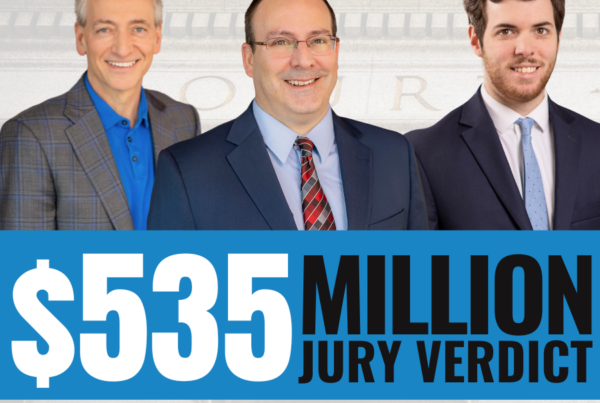
Every business that operates within the public realm and relies on consumers for its income and profits has a duty to those same consumers always to act fairly and transparently. At the least, they cannot intentionally make decisions, use regulations or otherwise take actions damaging a consumer’s health and well-being. When profits are prioritized over people, the result could be a deceptive, wrongful or dangerous company action that constitutes consumer fraud.
What are the Various Forms of Consumer Fraud?
There are near-countless ways a company could conduct consumer fraud. If they take an action meant to deceive or harm a consumer, it may fall into this category. However, there are a few umbrella categories of consumer fraud that encompass most forms in one way or another.
The four main forms of consumer fraud include:
- Unfair and deceptive practices: The largest of all the umbrella categories of consumer fraud are unfair and deceptive practices and actions. Companies need to be upfront and clear about how they conduct their business, how they price and sell products and services, how they donate to charity, and so forth. Any attempt to keep useful information from a consumer or an interested third party can be seen as deception and consumer fraud.
- Predatory lending: Financial institutions that hand out loans of money must be reasonable with who is approved and who is denied. In particular, approvals for loans must follow a clear explanation of all the terms of the loan, from interest rates to minimum payments and fees. Predatory lending occurs when loan information is withheld, fees are hidden or undisclosed, aggressive collection tactics are used, and so on.
- Junk fees: When a fee for a service is not necessarily hidden but is otherwise misrepresented, or simply should not exist in the first place, it is a consumer fraud form known as junk fees. A company might try to collect fees for a service the consumer never wanted, illegally implement “private taxes” that they keep without any carryover to the government, or stack late fees.
- Product defects: Although it may sound wrongly categorized, a defective product does constitute consumer fraud. Products sold on the market to a consumer are assumed to be safe for regular use. A defect flies opposite of that assumption and, therefore, can constitute fraud, especially when the manufacturer had reason to believe their product was unsafe or defective.
Other Examples of Consumer Fraud
Consumer fraud can happen in several ways, some more unexpected than others. People tend to hear more of identity theft or online shopping, but people could encounter real estate scams and consumer fraud in the healthcare industry. Here’s what to know and how to keep yourself from falling prey to these fraudulent activites:
- Identity Theft: This is when an individual wrongfully obtains and uses another’s personal information without their consent, most commonly for financial gain. Identity theft can wreak havoc on the victim’s finances, credit history, and even their reputation. Sensitive information can be acquired through methods like phishing, data breaches, or stealing physical documents, and the information can be used to open a fraudulent account, make unauthorized purchases, or even commit a criminal act. This can also lead to credit card fraud.
- Online Shopping Fraud: E-commerce has allowed more people to shop conveniently online, but it’s made consumer fraud even easier. Online shopping fraud can include various fraudulent practices, such as fake websites, counterfeit products, auction scams, and identity theft via online transactions. Unsuspecting consumers may fall prey to online shopping fraud through enticing deals that prompt them to provide personal information or make payments to a non-existent seller. It’s best to remain vigilant when shopping online and ensure you only shop from reputable websites and use secure payment methods to help avoid these scams.
- Real Estate Scams: Unfortunately, real estate is not immune to consumer fraud, and they could target buyers, sellers, and renters. This may include fraudulent property listings, rental scams, foreclosure rescue scams, and illegal timeshare schemes. Scammers will manipulate listing information, demand upfront payments or deposits without providing any services, or engage in identity theft to aid in real estate fraud schemes. Be sure to exercise caution, conduct thorough research, and work with only reputable agents or companies to prevent falling victim to a real estate scam.
- Fraud in the Healthcare Industry: Healthcare fraud can hurt victims financial or even negatively affect their health and wellbeing. Fraudulent activities in healthcare can include billing fraud, insurance fraud, administering counterfeit medications, or performing unnecessary medical procedures. These kinds of activities can result in inflated medical costs, compromised patient care, and potentially dangerous health consequences. After receiving any form of health care, be sure to review all medical bills and insurance statements carefully. If you find any suspicious activity, report it immediately to protect yourself and help eliminate future healthcare fraud from a particular organization.
- Banking Fraud: This fraud targets individual’s financial accounts. People may experience unauthorized withdrawals, forged checks, or complete account takeovers. Those committing fraud may gain access to personal banking information through techniques such as phishing, malware, or social engineering. Be sure to regularly monitor your accounts, always use secure passowords and two-factor authentication, and be cautious of any suspicious emails or phone calls requesting sensitive information.
- Internet Fraud: The digital landscape presents a broad spectrum of fraudulent activities, such as fake online auctions, non-delivery of purchased goods, or fraudulent investment schemes. Scammers will often exploit the anonymity provided by the internet to make deception much easier. Exercise caution when sharing any personal information online, verify the authenticity of websites and sellers, and be sure to thoroughly research an organization you intend to engage with via online transaction.
- Phishing Scams: Fraudsters will pose as legitimate entities, including banks, government agencies, or well-known companies to trick individuals into revealing sensitive information, from passwords to social security numbers or credit card details. These scams typically come in the form of emails, text messages, or phone calls. Be cautious of any unsolicitied requests for your information and double-check the sender’s authenticity before sharing any information.
- Credit Card Fraud: Similarly to identity theft, unauthorized individuals gain access to your credit card information in order to make fraudulent purchases. They may gain the information by using skimming devices, data breaches, or card cloning. Always keep an eye on credit card statements and report any suspicious charges immediately. If your bank offers it, consider enabling notifications or alerts for certain transaction activity.
- Mail Fraud: Some individuals use the postal system to deceive individuals for their own financial gain. This may include schemes like fake lottery winnings, sweepstakes scams, or fraudulent charity appeals. This type of scam is usually geared more toward vulnerable individuals, but as long as you refrain from responding to unsolicited mail, research any organizations prior to donating, and be wary of any offers that sound too good to be true, you will be protected.
- Finance Fraud: This encompasses a wide range of fraudulent activities related to financial transactions, including investment fraud, mortgage fraud, or insurance fraud. Essentially, a fraudster will exploit a person’s trust and manipulate financial systems in order to receive unlawful gains. Conduct your due diligence, seek professional advice, and carefully review all financial agreements to prevent falling victim to finance fraud.
- Investment Fraud: Through deceptive practices, investors will be misled and enticed to invest in fraudulent schemes or bogus investment opportunities. Some common types of investment fraud include Ponzi schemes, pyramid schemes, or pump-and-dump schemes. Be sure to research any investment opportunities thoroughly, ask questions, verify credentials of financial advisors or brokers, and keep a healthy skepticism of any promises of high returns with little risk.
Unfortunately, as with any fraud, perpetrators are always adapting tactics to continue exploiting unsuspecting victims. Being aware of and understanding the different types of consumer fraud can help you protect yourself, your finances, personal information, and overall wellbeing.
Preventing and Reporting Consumer Fraud
Prevention is key when safeguarding against consumer fraud. By being proactive and staying informed, you can significantly reduce the risk of falling victim to deceptive practices. Here’s some essential tips to help prevent consumer fraud:
- Stay Informed: Keep up-to-date with the latest fraud trends, common scams, and techniques used by fraudsters. Remain educated enough to recognize red flags and potential warning signs.
- Remain Vigilant: Always be cautious when sharing personal information, especially online. Be wary of any unsolicited communications, sensitive data requests, or offers that sound too good to be true. Trust your instincts, do your research, and don’t fall victim to high-pressure sales tactics.
- Keep Information Secure: Use strong, unique passwords, enable two-factor authentication, and regularly update software and antivirus programs in order to protect personal and financial information. Avoid sharing any sensitive information through unsecured networks or with unverified websites or individuals. If there’s any question to the validity, it’s best to err on the side of caution and don’t follow through with any transaction until you’re able to verify the information.
- Verify Legitimacy: Verify the legitimacy of individuals, companies, or websites before engaging in financial transactions, making an online purchase, or online investment. Research customer reviews, check for proper licensing or certifications, and independently verify claims or offers made.
- Monitor Accounts: Always regularly review bank statements, credit card statements, and other financial records to identify unauthorized or suspicious activity right away.
In the event you suspect or fall victim to consumer fraud, prompt reporting is critical as it will help raise awareness, assist law enforcement in their investigations, and can potentially help other individuals avoid becoming victims, as well. There are several steps to take if you discover you have been a victim of consumer fraud:
- Contact Law Enforcement: Report the fraudulent activity right away to local law enforcement or appropriate authorities in your jurisdiction. Be sure to provide as much detail as possible, including supporting evidence like documents, emails, or transaction records.
- Notify Financial Institutions: In addition to law enforcement, contact your financial institution to immediately report any fraudulent transactions so they can implement the necessary steps to secure your accounts, block future purchases, and, in some instances, recover missing funds.
- Report to Consumer Protection Agencies: Report the fraud to any relevant regulatory bodies or consumer protection agencies as they may have specific processes in place that can provide guidance on further steps to take.
- Inform Credit Reporting Agencies: If the particular fraud involves identity theft or unauthorized accounts opened in your name, notify the credit reporting agencies to have a fraud alert placed on your credit report to help prevent more fraudulent activities.
Reporting consumer fraud will not only help protect yourself, but also aid in combating fraudulent activities to hold fraudsters accountable.
Have You Been a Victim of Consumer Fraud?
Responding to potential consumer fraud is a difficult situation for the average consumer who likely does not understand their rights in detail. When do you have the right to seek compensation for damages related to consumer fraud? Must you take on a large company or corporation alone when you do file a claim??
Rather than trying to navigate these questions on your own, you can call (314) 241-2929 to team up with The Simon Law Firm. For more than 17 years, our team of St. Louis consumer fraud attorneys have been standing up for the rights of consumers just like you. We can determine if you have a valid consumer fraud claim and whether it should be filed individually or as part of a class action if you do. Get started today with a free initial consultation.







